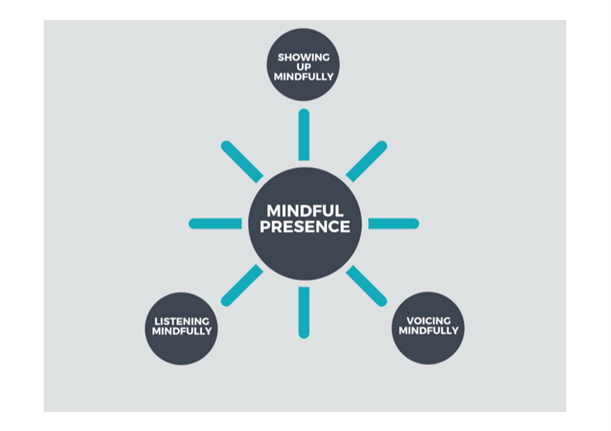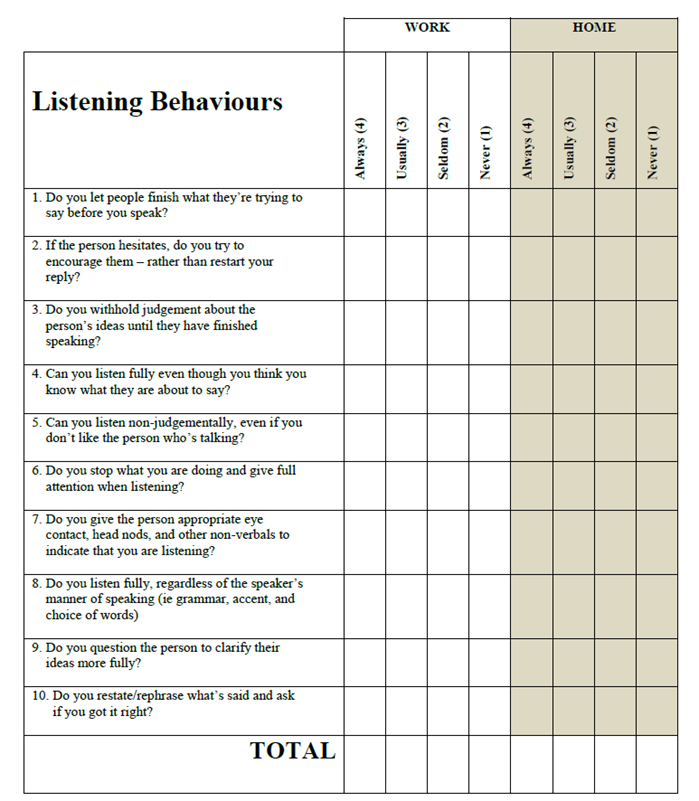Topic 3.5: Listening
Listening is sometimes called “the neglected communication skill”. That’s because it seems passive. While someone else talks, we “listen” … or wait until it’s our turn. Hearing and listening are different things and create different communication results. One observation is that listening is a physiological act and hearing is psychological.
“Listening is the front end of decision making,” writes Bernard T. Ferrari, author of Power Listening: Mastering the most critical business skill of all (2012). “Good listening – the active and disciplined activity of probing and challenging the information garnered from others to improve its quality and quantity – is the key to building a base of knowledge that generates fresh insights and ideas”.[1]
“Most of us do not listen very well unless we consciously work at it. There is too much interference, a lot of it coming from our minds … We are not naturally good listeners; listening requires concentration. Despite this, we tend to take listening for granted and assume that it is something that just ‘comes naturally’. Listening may appear to be easy, as it can look, from the outside, to be an essentially passive activity. Nothing could be further from the truth. Good listening requires an effort of perception; it is an active, ‘meaning making’ process … To listen effectively, you must want to listen.” (Putnis and Petelin, 1999, p28)[2]
Although this idea is hard to disagree with, it is still true that poor listening is seen as one of the ‘common colds’ of leadership and management. Listening is hard work. What makes listening a challenge for many of us is that we struggle to allow others to advance, explore and discover their own thinking and create new possibilities. Our own mental frames and assumptions are powerful and our instinct is to assume that we are “right”. And while we’d all claim to be committed to principles like “respect” and “learning”, it’s not until we are prepared to stop and listen that we actually demonstrate our commitment to those principles.
As the previous Mohan et al (2004)[3] reading noted, improving our listening ability includes:
- being prepared to listen;
- listening with an open mind, and
- listening with empathy.
Improving our active listening skills can be one of the most important communication skills we develop. The good news is that the opportunities are all around us, every day. Organisations are conversations. And the relationships we build – socially and professionally – are built one conversation at a time. The perceptions others have of their conversations with us – which leads to the degree of influence we have – are powerfully shaped by how well and respectfully they feel we have listened to them.
Required Reading
20 min
Mindful Presence
Mindfulness and mindful presence are critical in building strong connections with those we are communicating with. How do I show up? How am I listening and how am I voicing my position in a mindful way.

Recommended Activity
20 mins

Recommended Activity
20 mins
Observe some people you know at work or home who listen well.
- How do you know they are good listeners?
- What do they do?
- How do they make you feel?
- What can you learn from their example about listening and emotional intelligence?
The next time you’re in a conversation apply some of the tactics of good listeners and see what results you get. Make some notes about listening experiences in your reflective journal.
Recommended Activity
20 mins
In the following video, Amanda Sinclair, Professor of Management, Diversity and Change from the University of Melbourne, focusses on the importance of being in the present when we are relating with and in conversation with others. We miss so much when our mind is busy with our own thoughts. As leaders we need to learn and listen with all of ourselves – our ears, mind and heart – to demonstrate mindful presence and mindful leadership.
- Ferrari, B. T. (2012). The executive’s guide to better listening. McKinsey Quarterly. ↵
- Putnis, P. & Petelin, R. (1999). Professional Communication: Principles and applications. Sydney: Prentice Hall Australia ↵
- Mohan, T., McGregor H., Saunders, S. & Archee, R. (2004) Communicating as Professionals (1st Ed). South Melbourne: Thomson ↵

